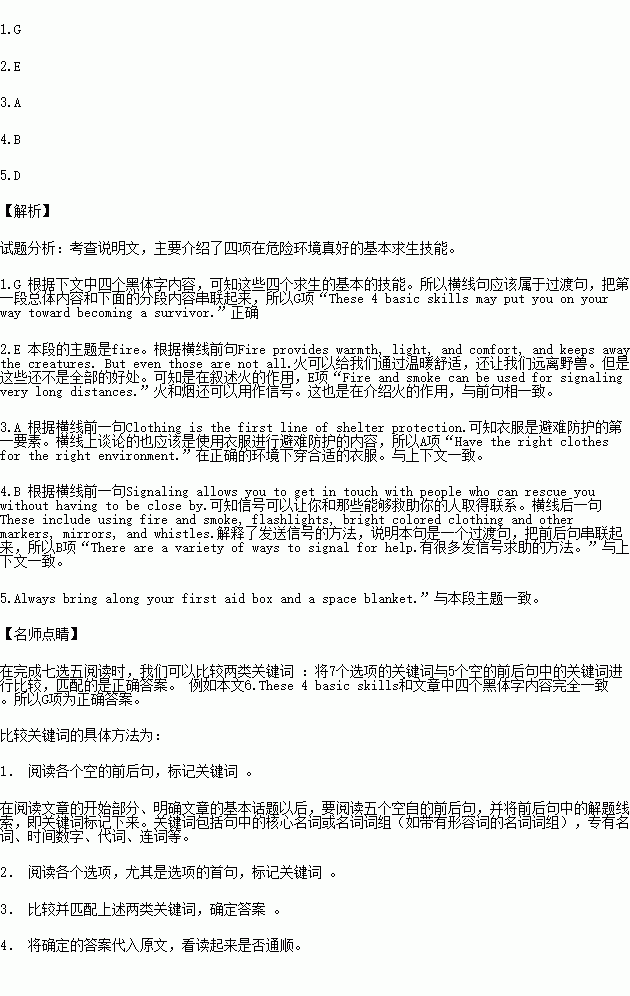题目内容
根据短文内容,从短文后的选项中选出能填入空白处的最佳选项。选项中有两项为多余选项。(如答题卡无EFG项,请按以下要求涂卡:选E涂AB;选F涂AC;选G涂AD)
The Basic Survival Skills
Learning survival skills is an ongoing process(过程)that will last for your entire life. Because each situation has its particular requirements, there is always more to learn and experience. 1.
Fire
Fire provides warmth, light, and comfort, and keeps away the creatures. But even those are not all. 2. Always have at least two ways of making a fire. With waterproof (防水的) matches, or a fire starter you should be able to create a fire anytime anywhere.
Shelter
Shelter protects your body from heat, cold, rain, snow, the sun, and wind. It also protects you from insects and other creatures that seek to do you harm. Before you are in need of making a survival shelter, be sure to practice and experiment with a variety of materials and survival plans on a regular basis. Clothing is the first line of shelter protection. 3.
Signaling
Signaling allows you to get in touch with people who can rescue you without having to be close by. 4. These include using fire and smoke, flashlights, bright colored clothing and other markers, mirrors, and whistles.
First Aid
5. Most injuries you may face in the wilderness are relatively minor cuts, burns and scrapes. Larger injuries need formal treatment, which means you will need outside help.
A. Have the right clothes for the right environment.
B. There are a variety of ways to signal for help.
C. Lay out SOS from rocks, logs or colored clothing.
D. Always bring along your first aid box and a space blanket.
E. Fire and smoke can be used for signaling very long distances.
F. Panic is your number one enemy when you are in any emergency situation.
G. These 4 basic skills may put you on your way toward becoming a survivor.
 优学名师名题系列答案
优学名师名题系列答案书面表达
高考在即,高三学生目前正处在紧张复习迎考的氛围中。假如你叫李华,是某中学高三学生,面对目前的压力,想和父母说些知心话,请你用英文在你的博客上用书信形式表达出来。主要内容如下:
知心话 | |
感恩 | 关切鼓励,倾注爱心 |
对父母 的期望 | 多交流,使自己保持良好的状态 创造条件,给自己提供适时帮助 |
学习打算 | 考生自拟(至少写三点) |
注意:1.短文需包括所有内容要点,可适当发挥;
2.词数:100左右。开头已给出,不计入总词数。
Dear Mom and Dad,
The annual college entrance examination is around the corner. On this special occasion, how I wish I could have a heart to heart talk with you.

